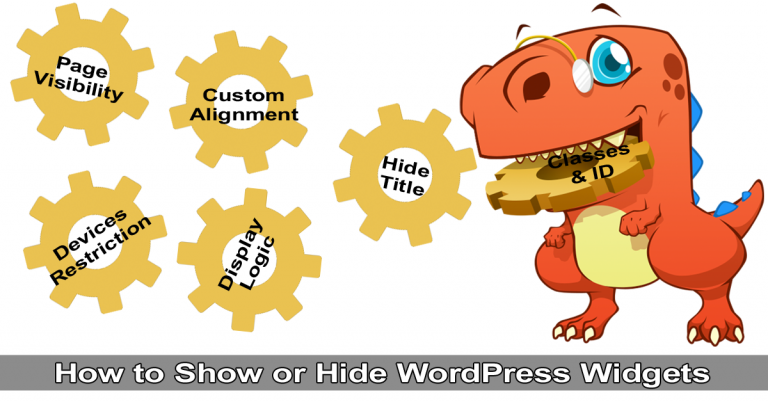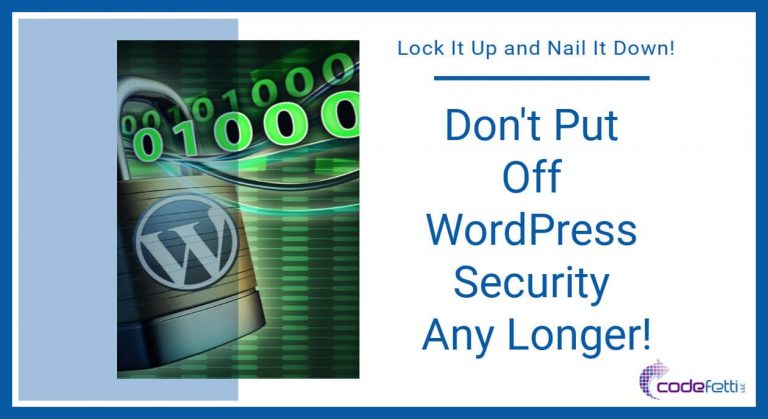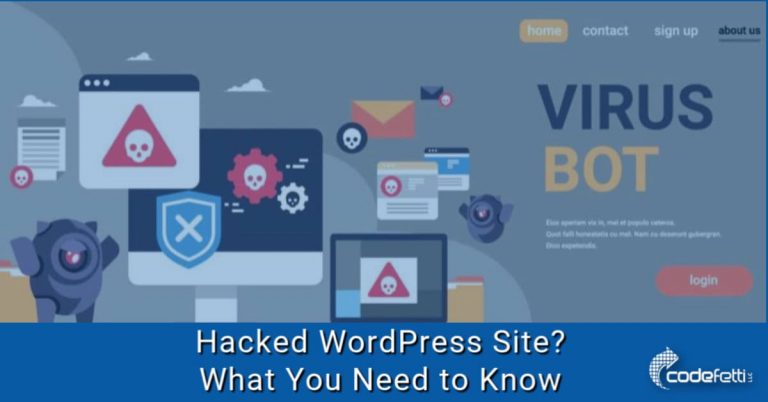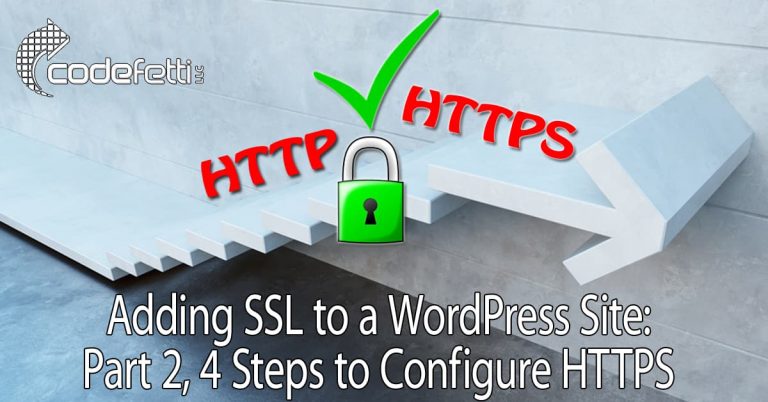Blogging Tips: Nuts and Bolts Guide to Business Blogging
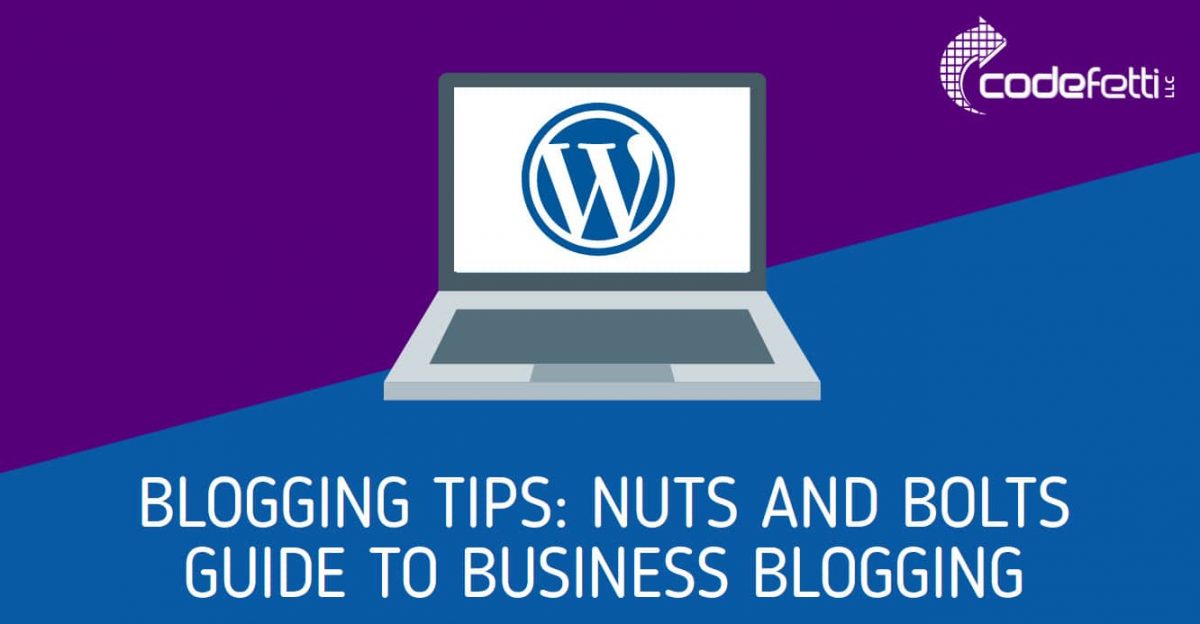
So you’ve finally decided to start a blog and are looking for blogging tips and advice. That’s great!
But you may be wondering where to begin.
This post will help you get started by sharing blogging tips for new bloggers.
We’ll cover:
- How Blogging Benefits You
- How to Set Up a Content Calendar (and why you need one)
- What is a Blog?
- Why Should You Blog?
- How to Start a Blog
- How to Blog
- Types of Blog Posts
- Keyword Research and SEO
- More Blogging Tips
And because there are so many posts and articles on blogging tips, I’ll share a round-up of some of the best blogging tips from top digital marketers.
Why Blogging is Important
Many years ago during the early stages of my blog, I wrote a post on why I felt that blogging was important.
At that time businesses held the notion that blogging benefits were negligible and that blogging was a waste of time and money.
Stretched for resources, including time and personnel, corporations abandoned their blogs on a daily basis.
Many believed that traditional marketing worked just fine so why mess with that proven formula?
Enter the Internet
Well, traditional marketing has worked fine in the offline ways of doing business. But there was no denying the 800-pound gorilla in the room; that is, that vast space known as “the internet.”
And the internet revolutionized traditional marketing methods as corporations began to look for ways to attract visitors naturally online. Thus began what’s known as “inbound marketing.”
With inbound marketing your online marketing activities bring customers to your website based on the interesting content you create.
It’s is a way that marketers attract leads through a robust content strategy through blogging, white papers, email and more.
Through the use of social media and content marketing, businesses began to tap into the potential of the internet and use inbound marketing to reach leads and customers.
Content Marketing – a New Term for an Old Concept
Content marketing isn’t all that new really.
After all, print publications and radio stations have been around for quite a while.
But the digital landscape has changed the ways consumers view business, the ways business does business, and the expectations of both.
Realizing this, Microsoft launched the first major corporate blog followed by Macromedia in the mid-2000’s.
And everyone else started to follow that trend.
Why I Wrote this Post
Many clients ask what a blog is, how to start one, and why they need one.
So I thought I’d create a comprehensive guide which covers the most important blogging tips.
These blogging tips will cover what you need to know in order to start a blog and effectively manage it.
There are hundreds of thousands of articles on blogging tips and benefits.
For that reason, it doesn’t make sense for me to write yet another blog post on the same topic. Instead, I’ll include a round-up of some of the best-written articles I’ve found on blogging.
As I mentioned earlier, blogging has been an integral part of my business for many years.
I made the decision early on that despite the trends I really enjoyed writing content that might benefit a reader.
And to be honest, if I help just one person, then I believe the effort is worthwhile.
Blogging benefits not only your visitors, but you as well.
How Blogging Benefits You
Let’s face it ~ writing is at the core of all we do.
From text messages to emails to Facebook statuses and tweets ~ it’s all about communicating a thought, idea, or feeling to someone else. So whether you consider yourself a writer or not, you are!
Now that you know you are a writer, doesn’t it make sense to do a little digging to see what makes you a better, if not great writer?
The more you blog, the more you write. The more you write, the more your writing skills improve. You may even learn to love writing!
As your writing skills improve, you can translate that writing ability into a tool that lets you express your emotions, share your knowledge, entertain, and educate others in your business.
That’s where your blog comes in!
Your blog can be your personal or business website.
The key is to start it and stay with it.
Consistently posting well-crafted content that shares your unique perspective on a topic is the cornerstone of effective content marketing.
Effective blogging:
- Increases brand awareness
- Sets you up as an expert in your field
- Builds trust
- Starts conversations
- Attracts search engines
- Drives traffic to your website
- Increases leads
- And is just plain fun!
An effective blogging strategy includes intentional planning and scheduling of content that people are searching for.
Is it easy?
Not really.
If you’re a small business owner writing your own blog posts, you can expect to spend from 8-20+ hours creating long-form content that sets your content apart.
That oftentimes translates to weekend and evening writing just so you can get it done.
Blogging requires dedication and commitment if you plan to do it right.
If you’re not willing to invest that time, then don’t bother to start a blog.
But if you are, read on. These blogging tips will show you how!
How to Set Up a Content Calendar
Launching a content marketing program is hard work.
But it’s important to define your business objectives as they relate to your content marketing.
Content Marketing Institute published an excellent workbook to guide you through the steps necessary to develop a successful content marketing program. You can download the guide here.
However, to be successful at blogging, you need to be consistent and publish articles on a regular basis.
In fact, have you thought about setting up an editorial or content calendar?
A content calendar helps you get organized and formulate a strategy that saves you time.
Your content calendar can help you decide what you will write about, when you will publish your content (i.e.: blog post), and on what social media platforms you will publish.
Here is an article on creating a content calendar:
4 Steps to an Awesome Content Calendar
Now that you have a basic understanding of inbound marketing concepts and content marketing, let’s look at how you can apply that knowledge to start your business blog.
What is a Blog?
- A blog (short for weblog) is simply an online journal of thoughts, tips, information, and advice.
- A blog is a collection of articles or posts.
- There are blogs for just about every niche, profession, or hobby.
- A blog can showcase your expertise and skills in a way that other forms of media cannot.
- Your blog can be your personal or business website.
In short, your blog contains the information or content that you will be sharing across digital channels or even offline.
A blog post can easily be turned into a downloadable white paper, video tutorial, infographic, or SlideShare presentation thus re-purposing the original content.
Why Should You Blog?
There are lots of benefits to blogging including brand awareness, lead generation, trust and authority as well as SEO benefits.
But those benefits don’t just happen overnight. It can take many months ~ even years for some brands ~ to realize these benefits.
As you build trust and credibility, you’ll ultimately start monetizing your blog as leads turn to you for products and services and become loyal customers.
There are no shortcuts; but there are habits that you can learn to make you an effective blogger. Learn more here:
Benefits of Blogging for Business
11 Reasons Why You Should Start a Blog Today
And I will agree with what the author in the above post states in Tip #10: “Blogging opens lots of doors for you.”
For me, it truly has.
How to Start Your Blog
WordPress is the top blogging platform and the one I use and recommend, too.
If You Already Have a WordPress Site
Do you have a WordPress website? Then you’re halfway there.
WordPress has a built-in blogging system that allows you to write posts (articles) and moderate comments that visitors leave.
If You Don’t Have a WordPress Site
If you’re just getting started, you might want to review our website planning guide.
And check out either of the following posts:
5 Steps to Take to Start Your Small Business Blog Today
How to Start a Blog – Beginner’s Guide for 2020
There are a few blogging platforms, but WordPress is the most popular by far and powers 35% of all websites.
That’s why I continually recommend it.
Types of Blog Posts
To keep your blog interesting and fresh, it makes good sense to mix up your content.
By including tracking code in your website, you can use Google Analytics to measure what types of posts are attracting visitors and how well your posts are performing.
For my blog, I’ve found that How-To articles, reviews, and video tutorials perform best.
But there are lots of different ways to write a blog post including podcasts and lists.
You can learn more in the following articles:
12 Types of Blog Posts to Drive More Traffic to Your Blog
My 23 Best Types of Blog Posts That Grab Attention
51 Types of Blog Posts to Help Grow Your Audience
How to Blog?
So you’ve set up your WordPress site and you’ve created your content calendar. Now what?
How do you blog? How do you create a blog audience? What do you blog about?
This is where it becomes important to know your buyer personas. That is, who is your ideal customer?
Who will you be writing for?
Identify Your Buyer Personas
If you downloaded the Content Marketing Institute workbook, you’ll see an exercise that helps you identify your buyer personas. Typically, you’ll have more than one buyer persona or audience.
Your content marketing should be targeting only one of these personas at a time.
For example, my main buyer persona is the small business owner who runs a WordPress site.
But I also write for technical audiences such as website designers or developers.
Some of my favorite types of blog posts to write are:
Case Studies
I’ve found that customers and prospects often spark blog post ideas by the questions they ask and the problems they need solved. These ideas can lead to in-depth case studies.
How-To’s
Solving technical issues that I’ve encountered has led to some interesting how-to articles that have received lots of engagement. These posts are generally accompanied by a YouTube video.
Reviews
One of my top posts was an email comparison review that I did back in 2014.
People love when you do the research and analysis for them. It saves time and builds credibility for your brand.
For other ideas, check out these excellent posts:
How to Decide What to Blog About
How to Start a Blog That Makes Money
And just a little friendly advice: it’s better off to not publish a poorly written post then to publish just to publish something.
If your idea isn’t fully developed or the content is thin, your ranking may take a hit as Google takes these items into consideration.
More Blogging Tips
Earlier we talked about creating a blog post around a specific topic. A good blog post will answer questions that people are searching for on the internet.
That’s where keyword research comes in.
Keyword Research and SEO
Keyword research can help you find what questions people are asking on a given topic. That is, what questions are they typing into the search engines.
The more thoroughly you answer these questions, your content will rank better than mediocre posts from your competition.
There are a variety of online tools to assist you with your keyword research. Some of these tools are free, others are paid subscriptions:
So you can see how keyword research is highly important and will help with your SEO efforts.
This is because content that is answering the right questions is rewarded by the search engines who strive to return the most relevant results for a given query.
So make sure you spend time to address the concerns and questions of the audience for which you will be writing.
Then make every effort to apply best practices for on-page SEO Techniques for every post you write.
Using Images
It’s perfectly fine to break up a long post with strategically placed images. It helps make your content easier to read.
According to Neil Patel, a “top influencer on the web”:
Any image is better than none, but some images are better than others. In my experience, here are the best types of images to use in blog posts:
- graphs
- charts
- stock images (sparingly)
- custom images
- cartoons/comics
Blogging Tips from the Pros
It’s great to get blogging tips from the people who are doing it best.
So here they are:
38 Blogging Masters Reveal Their Best Advice
In Summary
You might feel overwhelmed when starting your business blog, but hopefully these blogging tips will get you started.
Remember that every brand has a story; figure out what your story is and tell it!
Blogging Tips
- Create unique posts around with 1,500 words at a minimum
- Do your keyword research
- Focus your post on one specific topic or idea
- Write your post for a single demographic or buyer persona
- There is nothing new under the sun, but your perspective can be
- Mix up your post types and try different formats
- Answer simple questions to solve a problem
- Create How-To’s and videos to explain a topic
- Polish your content and make it the best it can be
- Use images where appropriate and at least one per post
- Don’t let fear stop you from publishing
- Periodically check older posts for accuracy and validity
And finally, this goes without saying but I do need to mention it anyway:
Never divulge confidential client data without asking your client first. If you want to do a case study in a blog post, make sure you get the customer’s approval first.
We’ve only scratched the surface here with blogging tips and advice, but hopefully you have learned how to get started.
What challenges have you had with your blog? Any blogging tips you can share?
We’d love to hear them in the comments below!


